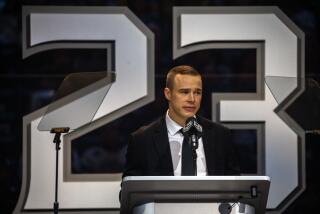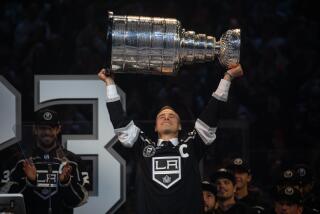Hockey legend Bobby Hull, the speedy ‘Golden Jet,’ dies at 84
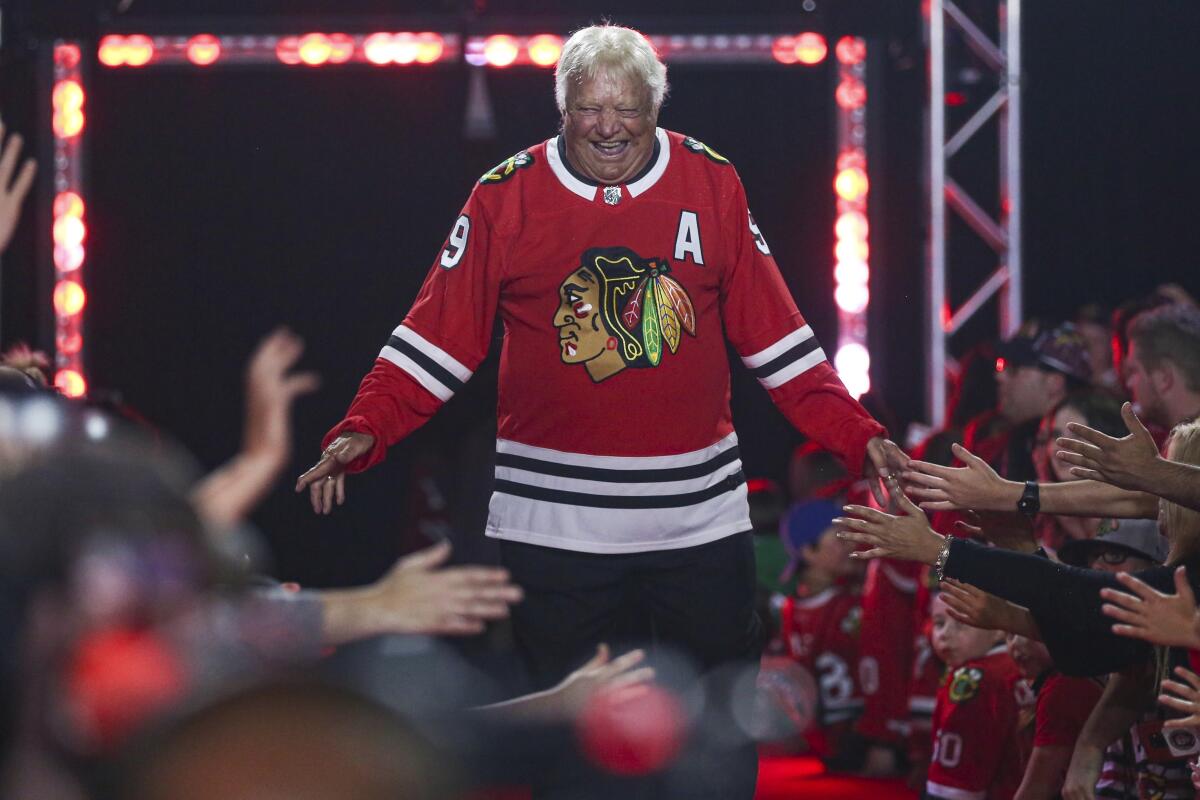
When Bobby Hull got the puck, he was tough to stop. He had blazing speed, a hard slap shot and tons of confidence.
Long before today’s biggest stars took the ice, “the Golden Jet” put on quite a show.
Hull, a Hall of Fame winger and two-time NHL MVP who helped the Chicago Blackhawks win the Stanley Cup in 1961, has died at 84.
The Blackhawks and the NHL Alumni Assn. announced Hull’s death on Monday. There were no further details provided by either organization.
The Blackhawks said Hull “delivered countless memories to our fans, whom he adored. Generations of Chicagoans were dazzled by Bobby’s shooting prowess, skating skill and overall team leadership that led to 604 career goals, a franchise record that remains to this day. We send our deepest sympathies to the Hull family.”
Hull was one of the most prolific forwards in NHL history, scoring 610 times during his 16-year career with Chicago, Hartford and Winnipeg. Nicknamed “the Golden Jet” for his speed and blond hair, he also collected 303 goals while playing for the Jets in the World Hockey Assn. for seven seasons.
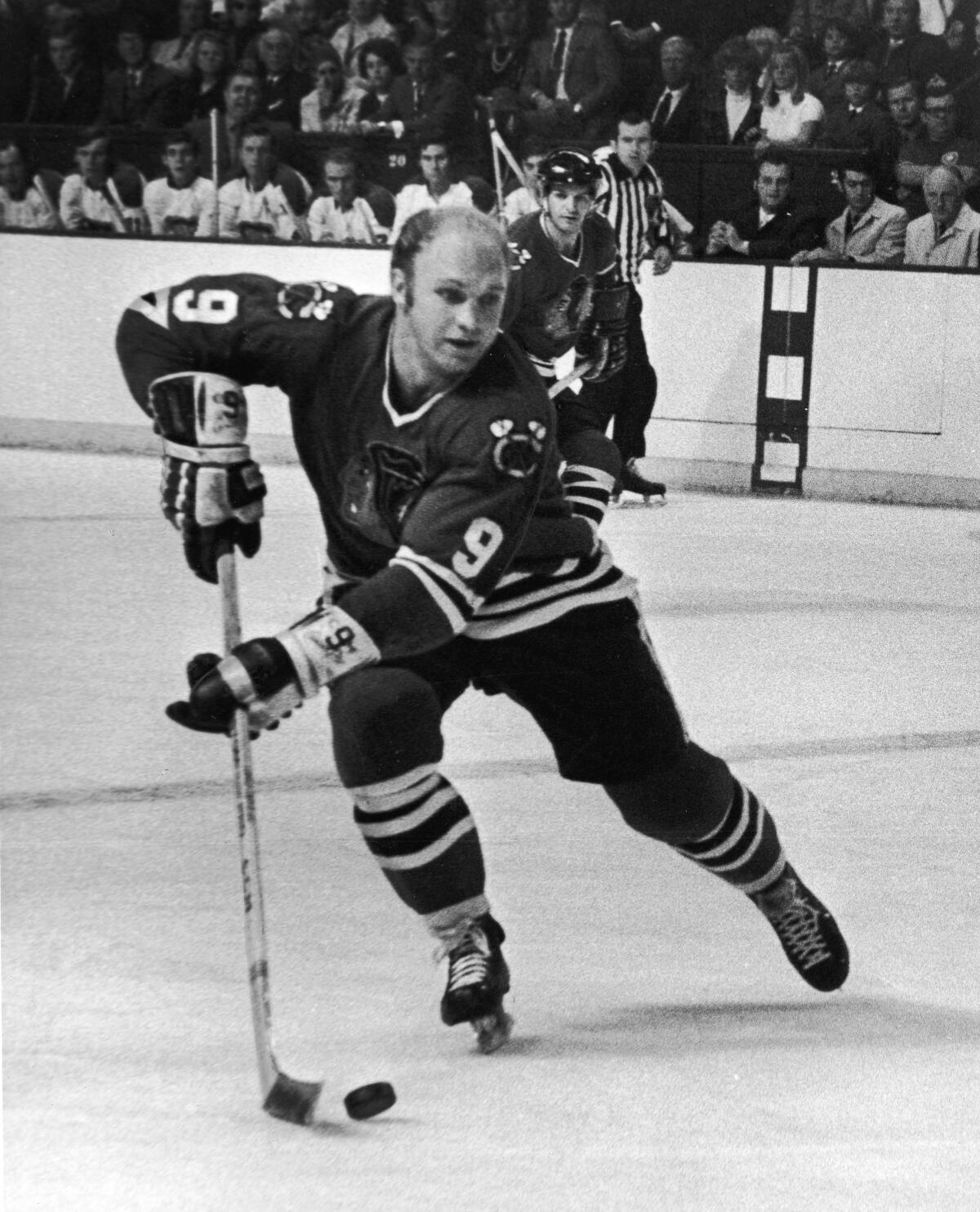
While Hull starred on the ice, he faced legal and family issues in his personal life.
Hull was convicted of assaulting a police officer who intervened in a dispute with his then-wife Deborah in 1986. He also was accused of battery, but that charge was dropped after she told authorities she didn’t want to testify against her husband, a state attorney told the Chicago Tribune.
Hull’s second wife, Joanne, accused him of abuse during an interview with ESPN for a 2002 show.
A Russian newspaper reported in 1998 that Hull went on a rant and said that Adolf Hitler “had some good ideas.” Hull denied making the comment, calling the report “false and defamatory.”
Hull was inducted into the Hockey Hall of Fame in 1983 and his No. 9 sweater was retired by the Blackhawks that same year. He was estranged from the team for a while before he was named a Blackhawks ambassador in a ceremony with former teammate Stan Mikita in 2008. Hull and Mikita have adjacent statues outside the United Center.
The franchise announced in February 2022 that Hull had retired from any official team role, calling it a joint decision.
“Bobby Hull will always be remembered as one of the greatest Blackhawks players of all time. He was a beloved member of the Blackhawks family,” team owner Rocky Wirtz said in a statement.
“When I assumed leadership of the organization upon my father’s passing in 2007, one of my first priorities was to meet with Bobby to convince him to come back as an ambassador of the team. His connection to our fans was special and irreplaceable.”
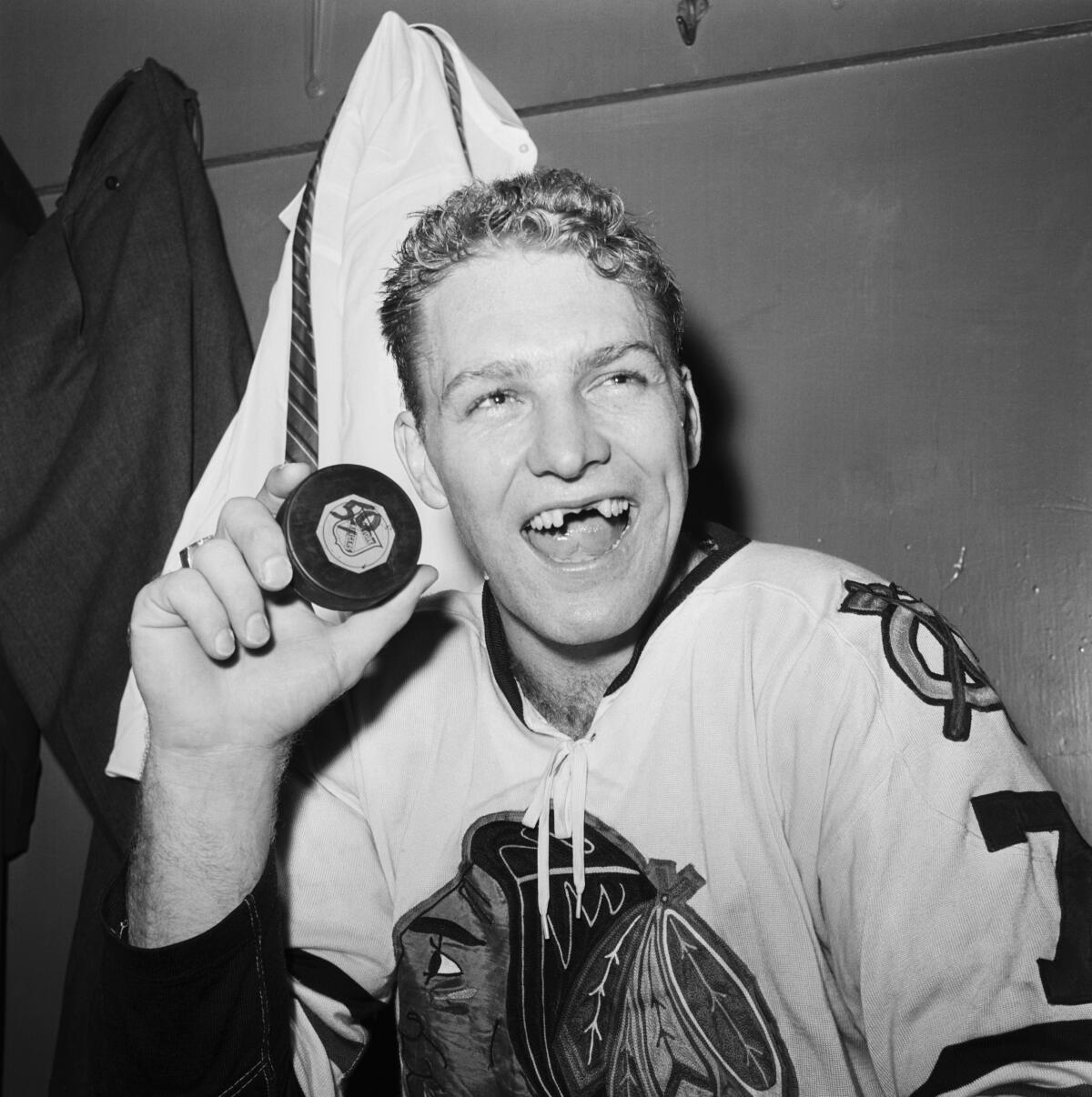
Hull’s brother, Dennis, played for Chicago for most of his 14 years in the league, and Bobby’s son, Brett, spent 19 years in the NHL. Bobby and Brett each won the Hart Trophy as league MVP, becoming the first father-son duo to accomplish the feat. Bobby won in 1964-65 and 1965-66, while Brett won in 1990-91.
Bobby Hull helped the Blackhawks return to the top of the NHL after they were one of the worst teams in the league for years before his debut during the 1957-58 season. He had 13 goals and 34 assists in his first campaign with the team, finishing second in the Calder Trophy race for rookie of the year.
It was a steady rise from there. Hull posted 13 consecutive seasons with 30 goals or more from 1959-72, becoming a perennial fixture at the All-Star Game and a regular candidate for the league’s top awards.
Hull and Mikita powered Chicago to the franchise’s third championship in 1961, beating Montreal and Detroit in the playoffs. Hull had two goals and five assists as the Blackhawks eliminated the Red Wings in six games in the final.
The Pointe Anne, Ontario, native remains Chicago’s career leader for regular-season and playoff goals. He is second to Mikita on the franchise points list with 1,153.
Hull left the Blackhawks after the 1971-72 season when he was selected by Winnipeg in the WHA draft. The Jets lured Hull away from the NHL with hockey’s first $1-million contract, according to his bio on the Hall of Fame website.
The NHL and WHA merged in 1979, and Hull played 27 games with Winnipeg and Hartford in his final season before retiring.
Hull had 560 assists in 1,063 regular-season NHL games. In addition to his two Hart trophies, he was a three-time winner of the Art Ross Trophy awarded to the league leader in points and took home the 1965 Lady Byng Memorial Trophy for sportsmanship combined with stellar play.
NHL Commissioner Gary Bettman in a statement called Hull “a true superstar with a gregarious personality.”
More to Read
Go beyond the scoreboard
Get the latest on L.A.'s teams in the daily Sports Report newsletter.
You may occasionally receive promotional content from the Los Angeles Times.
